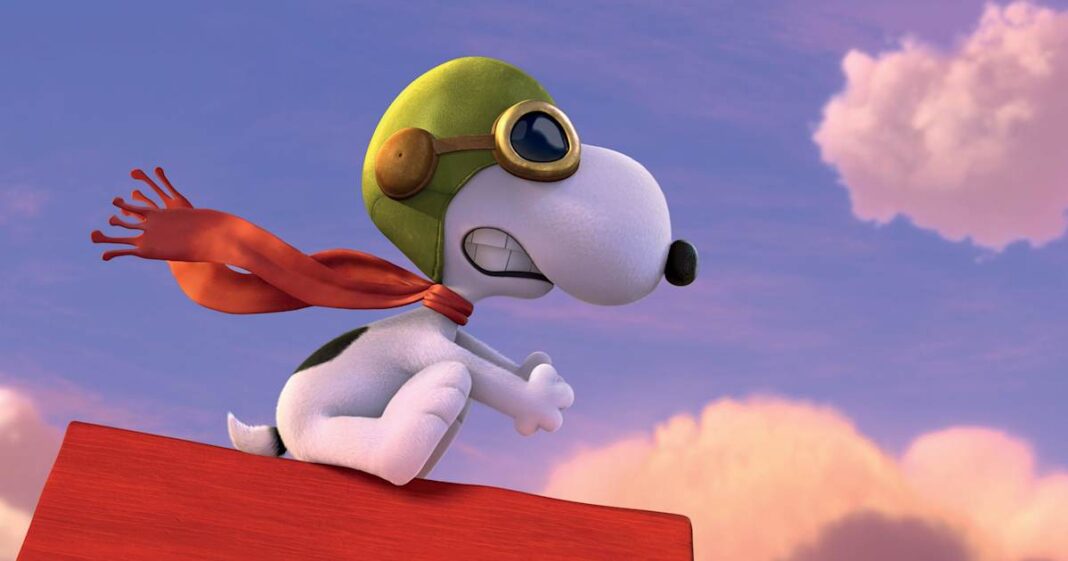‘Curse This Stupid War!’
The world of comic strips often serves as a reflection of societal issues, and few have navigated this delicate interplay as expertly as Charles Schulz with his iconic character, Snoopy. Through the lens of an imaginative beagle who became the World War I Flying Ace, Schulz tackled themes of conflict, loss, and frustration—especially during the Vietnam War era. His portrayal of Snoopy’s aerial battles was infused with both humor and poignant commentary, capturing the feelings of a generation grappling with the realities of war.
The Flying Ace Adventures
In the years following the onset of the Vietnam War, Schulz illustrated Snoopy’s adventures as a flying ace, often depicting him in conflict with the infamous Red Baron. This fictional struggle echoed the real-life turmoil that many American troops faced overseas. One particularly striking comic strip showed Snoopy becoming a prisoner of war—a clear nod to the growing number of American POWs during the Vietnam conflict. Such dramatic depictions not only entertained but also stirred conversations about the implications and human costs of war.
On January 9, 1966, Schulz took a more graphic turn, sketching bullet holes across Snoopy’s Sopwith Camel, or doghouse. This moment marked a shift in the strip’s tone, reflecting the escalating danger that American soldiers encountered. The humor that characterized earlier strips began to give way to a deeper sense of anxiety—a sentiment felt acutely by those following the events of the time.
The Weight of War
As the Vietnam War dragged on and the death toll continued to rise, Schulz’s frustration became increasingly apparent in the comics. Snoopy began to express a sense of despair, often found musing over root beer in imaginary French cafés, a stark contrast to the chaos of dogfights. On June 1, 1969, Snoopy’s famous exclamation, “Curse this stupid war!” encapsulated the disillusionment many felt. It signified his emotional withdrawal, as the Flying Ace effectively grounded himself until the conflict came to a close.
In an insightful interview, Schulz reflected on this shift, stating that the war had become “too real” for him to involve his beloved characters in its horrors. His comics, initially a light-hearted portrayal of conflict, became a profound commentary on the slow, painful sinking into the quagmire of war, mirroring the sentiments of those living through it.
A Rallying Cry
The phrase “Curse this stupid war!” evolved beyond the comic strip. It resonated with service members who felt trapped in a seemingly endless conflict, becoming a rallying cry for countless individuals in Vietnam. Many began to adopt this exclamation into commemorative patches and imagery, turning a cartoon character’s lament into a profound statement of shared experience and frustration.
Legacy of the Flying Ace
By the early 1970s, Snoopy’s escapades as the World War I Flying Ace had become woven into America’s cultural fabric regarding Vietnam. Schulz’s work highlighted the complexities of war—its humor, its absurdity, and its devastating impact. For troops stationed abroad, the character became a symbol of exasperation and unexpected hope, while for readers at home, Snoopy offered a dual lens through which to examine their feelings about the ongoing conflict.
Even decades after Schulz’s passing in 2000, Snoopy remains an enduring figure in pop culture. His alter egos continue to captivate new generations, but it’s the Flying Ace who carries a unique weight—a reminder of a beagle engaging in fanciful dogfights while the grim realities of war persisted just beyond the clouds of imagination.
Ball, a prominent commentator on Schulz’s work, noted how the simplicity of Schulz’s storytelling belied a deeper significance. “He had a way of expressing what many people felt without them even knowing it,” he remarked. This nuanced approach contributed to the lasting impact of Snoopy and his adventures, leaving an indelible mark on both comic history and cultural commentary.
A Reflection of the Human Experience
Through the whimsical yet profound lens of a comic strip, Schulz managed to craft narratives that resonated with the anxiety, despair, and ultimate hope found in the human experience. The tension between the humor and somber realities of war showcased his ability to connect with audiences on multiple levels, making the world of the Peanuts gang not just a source of laughter but a canvas for deeper reflection.



